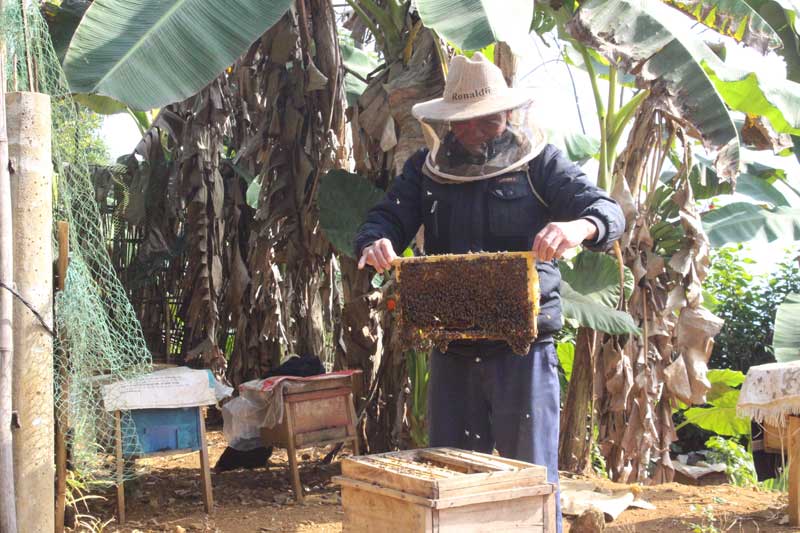


Mr. Bui Van Dau from Than Duoi village
excitedly said: "The winter this year comes later than every year, it is
still warm and sunny at the end of December. Therefore, some households raising
bees can provide the market with honey. This is the first year my family has
started to develop bee keeping model for honey, so we are still lack of
experiences and technology. However, we received the support from the other
beekeeping households in the hamlet and we found it effective. We collected 60
liters of honey, getting the profit of over 10 million VND. It is only a
temporary job but the income is fine "

Honey beekeeping provides a significant
income for the households in Muc Doi commune (Lac Son).
Mien Doi fully converges elements to develop beekeeping
for honey such as climate, soil and rich and diverse forest resources. Except
for winter, during the three remaining seasons of the year bees can give honey
to help households with income. In particular, the peak is from March to July
of the calendar, the time when flowers are blooming. Therefore, from 2010 up to
now, honey beekeeping has become a movement attracting many households in the
commune to participate. Currently, some households have developed beekeeping
models with the number of 30 - 40 flocks. The final prices range from 140,000
to 200,000 VND a liter depending on the time, bringing about 40-60 million VND
a year. The typical households in the beekeeping movement in Mien Doi are M.r
Bui Van Luong (Bang village), Mr. Bui Van Rieng (Than Tren Village), Mr. Bui
Van Manh (Voi Thuong village) and so on.
Currently, all the products are consumed in
the free market and sold in the neighboring markets. They have not yet been
able to be linked with the output consuming enterprises and companies. Besides,
some beekeepers also apply the manual techniques, not applying scientific and
technological advances to the beekeeping process to improve the productivity
and quality of the product.
No success is easy, especially for a mountainous province like Hoa Binh, which still faces many difficulties. In the process of economic restructuring, the locality encounters various challenges, ranging from weak infrastructure, ineffective investment attraction, to barriers in awareness. However, it has taken effective solutions to overcome obstacles hindering economic development.